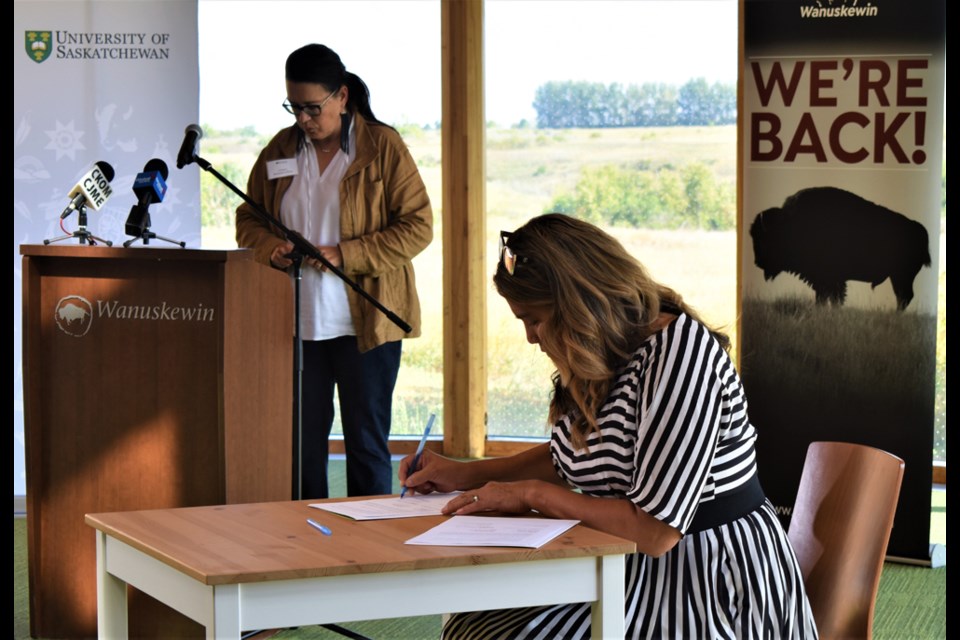SASKATOON — Wanuskewin Heritage Park’s bid to be included on the World Heritage Site list received a huge boost after the Saskatchewan provincial government committed funds for the land that was formerly inhabited by Indigenous peoples of the Northern Plains.
The United Nations Educational Scientific and Cultural Organization grants the status, which provides international recognition and legal protection like during a war where the site will be protected from destruction under the Geneva convention. A heritage site can also get funds from the World Heritage Fund to help with its conservation.
The province will be giving a one-time fund of $60,000 that will be used to hire a project coordinator to oversee and directly support Wanuskewin’s application process to UNESCO. The one-time fund, contributions from other donors, and partnerships created shows the province’s willingness to help Wanuskewin to pursue becoming Saskatchewan’s first World Heritage Site.
"Wanuskewin is a significant part of our province. Our government highlighted our commitment to support Wanuskewin's UNESCO application in Saskatchewan's Growth Plan, and we believe this grant will provide a solid foundation to move the process forward," said Parks, Culture, and Sport Minister Laura Ross.
UNESCO’s World Heritage Site designation is considered to be the highest recognition earned for a protected land that acknowledges human achievements and the beauty of nature’s creations. Earning the status takes many years and the process is complex, but it is the gold standard for cultural and scientific sites in the world.
The Great Barrier Reef off the coast of Queensland in Australia, the Taj Mahal in the city of Agra in Uttar Pradesh State in India, the 21,196-kilometre Great Wall of China in the Huairou District, the Tubataha Reefs National Park in Palawan province in the Philippines, the Galapagos Islands of the coast west of Ecuador, and Machu Picchu in the Cuzco region in Peru are some of those that earned UNESCO World Heritage Site status.
Wanuskewin chief executive officer Darlene Brander thanked the provincial government for the one-time funding.
"The province's investment into preserving the past, is a strong investment in our shared future to ensure that we have the resources to put toward Wanuskewin's UNESCO nomination work," said Brander.
"We know that we cannot do this alone. This kind of provincial support signals strong stakeholder engagement to help us tell our story. One that showcases the richness, cultural diversity and archaeological attributes that will make Wanuskewin a very strong contender to become Saskatchewan's first UNESCO World Heritage Site.”
Wanuskewin’s chief archeologist Ernie Walker has been promoting the historical and cultural significance of the 600-acre facility, not only for First Nations but for Indigenous people in general.
“Wanuskewin is about celebrating First Nations culture, in all aspects: art, environmental, the spiritual part of all of that. But it takes a much longer view. It's not about the last 100 years. It's about the last 12,000 years. And so, again, that longer view how this all came to be, is, I think critically important,” Walker said in an earlier interview.
Saskatchewan and the sparsely populated Nunavut are the only province and territory in Canada that don't have a UNESCO World Heritage Site. The entire country currently has 20 sites that are on the list.




